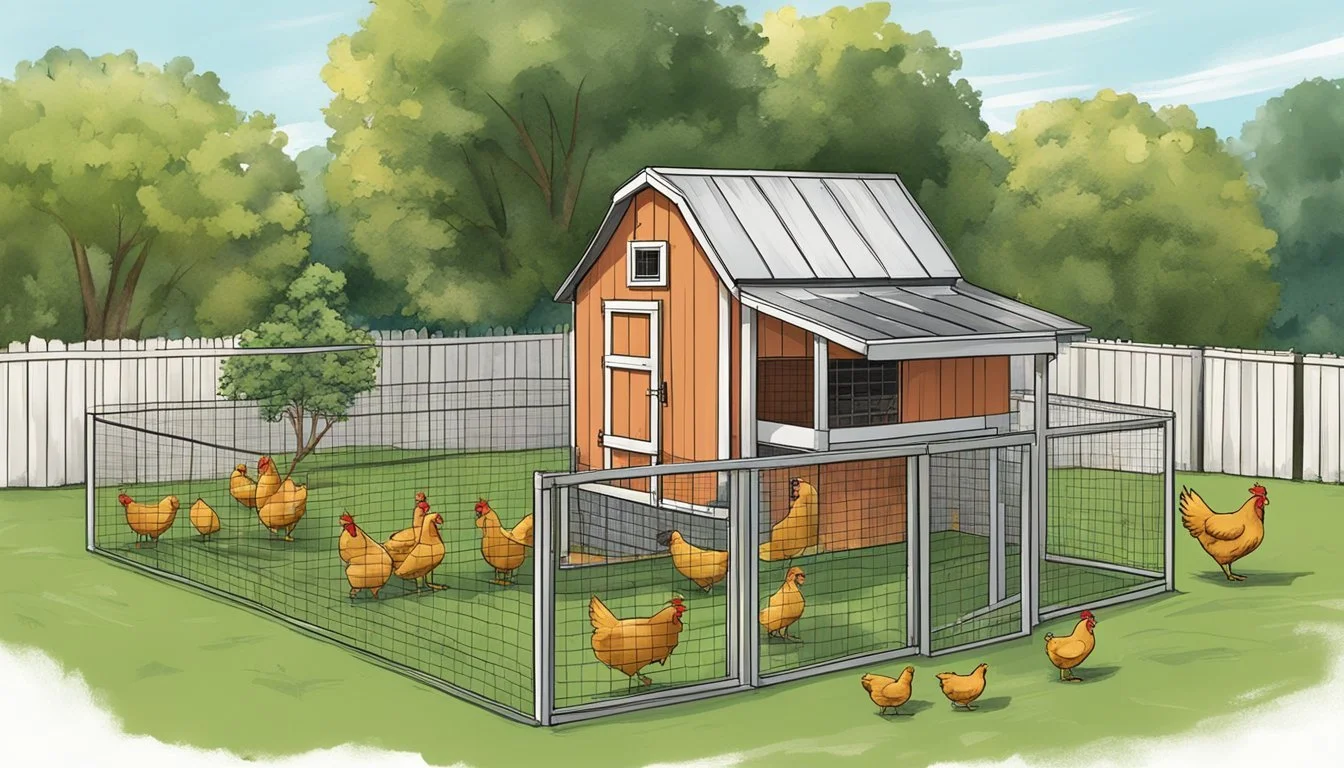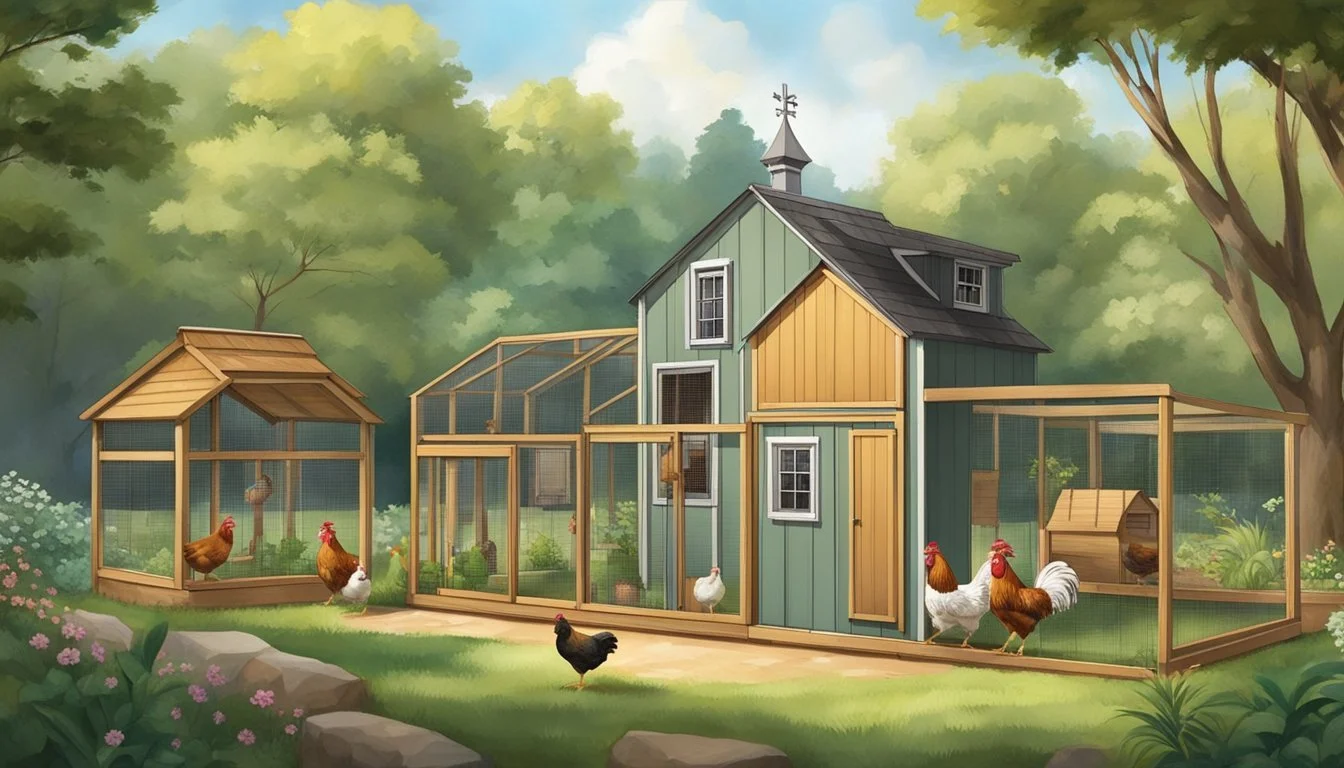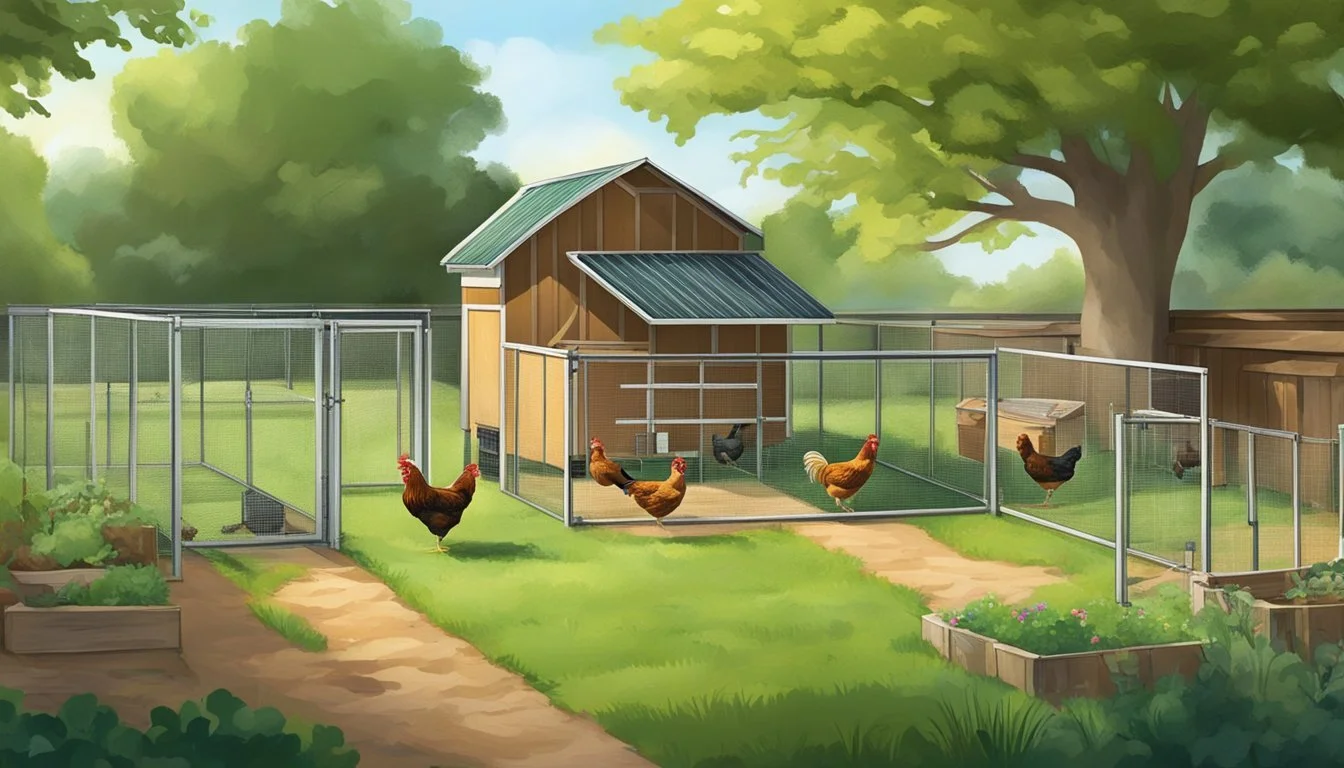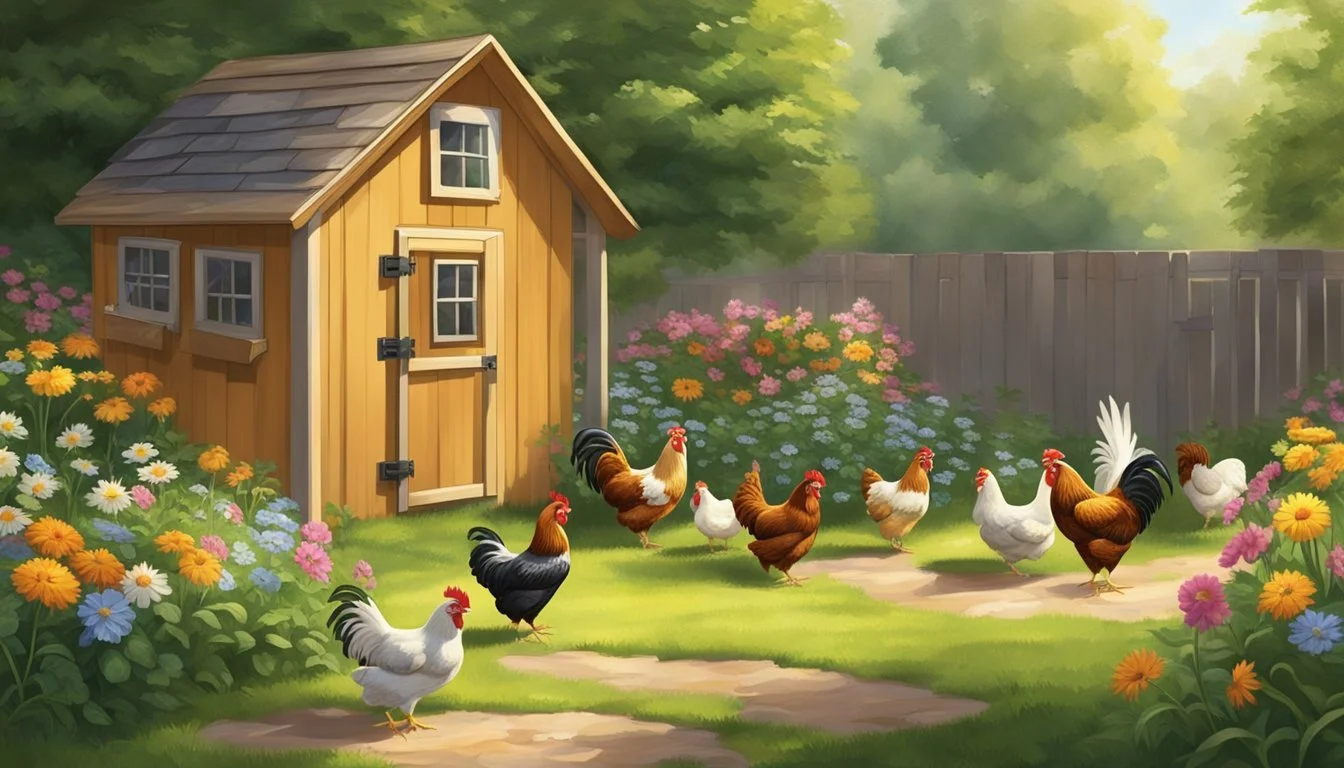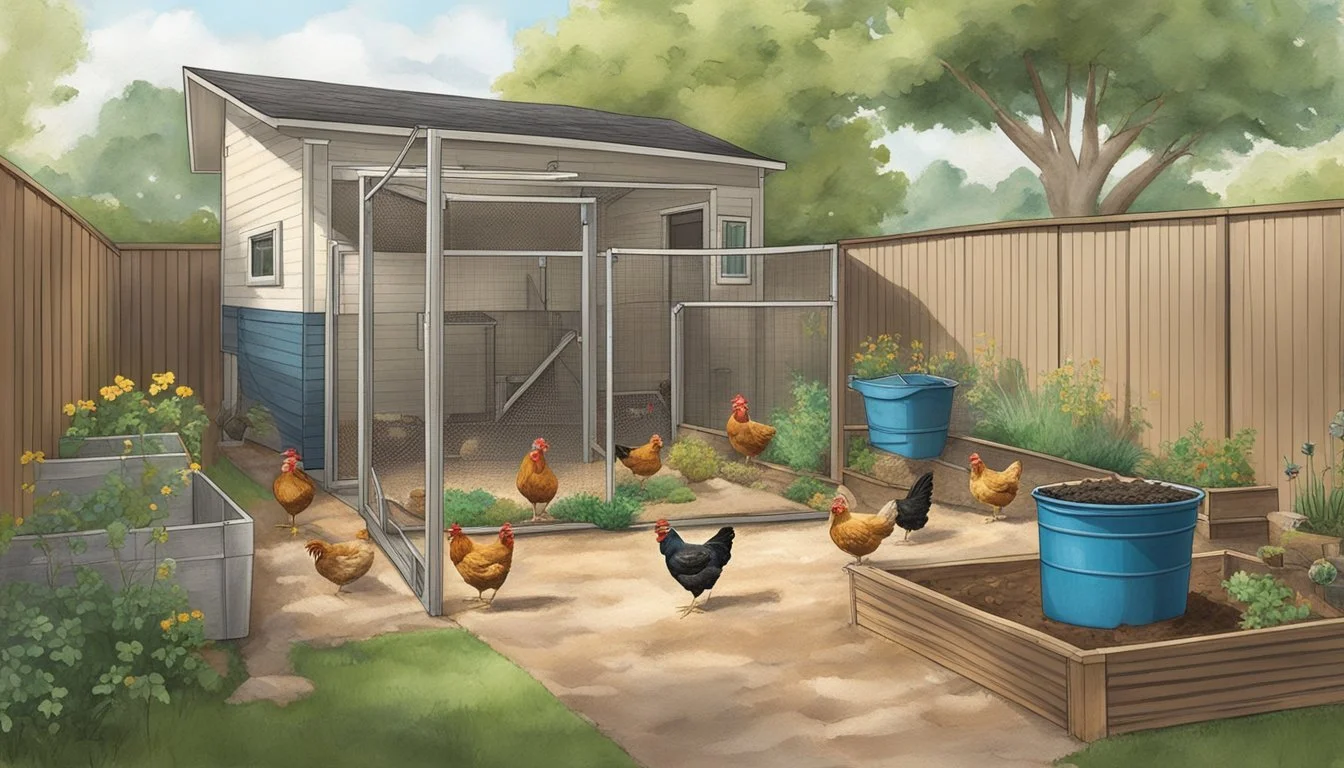Keeping Backyard Chickens in Waco, TX
Your Essential Guide to Urban Poultry Farming
Raising backyard chickens (how long does chicken last?) in Waco, Texas, has become increasingly popular among residents looking to embrace a measure of self-sufficiency and enjoy the benefits of fresh eggs. The movement towards urban agriculture has been catalyzed by a growing interest in sustainable living practices. In Waco, individuals interested in keeping chickens must adhere to specific ordinances designed to balance the joys of poultry rearing with community standards and safety.
Before embarking on establishing a backyard flock, it is imperative for Waco residents to understand the local regulations that govern such activities. The City of Waco mandates that all potential chicken keepers become familiar with the rules pertaining to the number of chickens allowed, coop construction standards, and setback requirements from neighboring properties. Compliance ensures that chickens are kept in conditions that are not only healthy for the birds but also considerate of neighbors and community aesthetics.
Moreover, it is essential to acknowledge the commitment involved in maintaining a healthy and productive backyard flock. Chickens require proper housing, regular feeding, access to clean water, and protection from predators and harsh weather. Prospective chicken owners in Waco should prepare to invest time and resources into creating a suitable environment for their birds, aligned with Texas's broader animal welfare standards, to reap the full benefits of raising chickens in an urban setting.
Local Laws and Ordinances
Before keeping backyard chickens in Waco, TX, residents need to be aware of specific local laws and ordinances to ensure they are compliant. Non-compliance may result in legal implications ranging from fines to the removal of the chickens.
Understanding Waco's Chicken Ordinance
In Waco, Texas, individuals can keep chickens within the city limits but must adhere to the city's chicken ordinance. The specific requirements include:
Enclosures: Chickens must be kept in an enclosure or fenced area at all times.
Distance: Enclosures must be at least 50 feet from any neighboring residence.
Roosters: The keeping of roosters is often discouraged or prohibited within city limits due to noise concerns.
Comparing Regulations Across Texas Cities
Different cities in Texas have varied regulations regarding backyard chickens. For example:
Austin: Known for its progressive stance, allowing a certain number of chickens without a permit.
Dallas and Fort Worth: Permit requirements and restrictions on distance from neighboring structures are in place.
Houston and San Antonio: Residents must comply with strict guidelines that govern the number of chickens and enclosure specifications.
El Paso, Plano, Arlington, and Laredo: Each city has its local ordinances which may include permit requirements or restrictions on the number of fowl.
The comparative ease or difficulty in keeping chickens across these cities can be attributed to the unique attitudes and enacted policies during and after events, such as the coronavirus pandemic.
Penalties for Non-Compliance
Fines and penalties for not following local chicken ordinances can be stringent. In Waco, non-compliance with chicken laws can lead to:
Fines: The City may impose fines for each violation, with amounts varying based on the severity and frequency of the offense.
Removal: In extreme cases, non-compliant chickens may be removed from the property.
Residents should stay informed of any legislative changes, such as those from the 2021 legislative session or initiatives by Texas state representatives like James White, which may affect local and state laws concerning the raising of backyard chickens.
Setting Up Your Chicken Coop
When establishing a chicken coop in Waco, TX, it is crucial to adhere to local ordinances while ensuring the health and safety of the chickens. Proper placement, design considerations, and predator protection are foundational to a successful backyard flock.
Choosing the Right Location
The coop must be positioned at least 50 feet from the owner's residence and 200 feet from neighbor residences, unless the lot exceeds 5 acres. Factors such as sunlight exposure, drainage, and accessibility should influence the location. In Waco, consider local county regulations when selecting a spot to ensure compliance with any additional rules related to schools, churches, or other institutions.
Designing for Comfort and Safety
A chicken coop must offer adequate space for the birds to live comfortably. Ventilation is key for maintaining air quality and regulating temperature but must be designed to keep out drafts. The inclusion of roosting bars, nesting boxes, and ample floor space will support the chickens' natural behaviors and promote a healthy flock. Fencing around the coop should be sturdy, deterring potential threats such as dogs, cats, or even curious raccoons.
Protecting Against Predators
In Texas, predators are a significant concern for backyard chickens. A coop must have robust defenses, including secure latches and a wire mesh that extends underground to thwart digging animals like foxes or wild rabbits. The top of the coop and run should be covered with a wire or netting to protect the chickens from aerial threats. Regular checks for signs of attempted entry and maintenance of the structure will help safeguard your backyard livestock from native predators.
Chicken Care and Management
Proper care and management are crucial for the health and productivity of backyard chickens in Waco, TX. Owners must ensure they meet their flock's nutritional needs, maintain their health, and keep their living environment clean.
Daily Nutrition and Water Needs
Chickens require a balanced diet to stay healthy and produce a reliable source of eggs. A typical diet includes grains, proteins, and greens. Layer feed provides hens with the necessary nutrients for egg laying, while supplements like oyster shells can be offered to bolster calcium intake.
Provision of clean, fresh water is essential for a chicken's daily food source and overall health. Waterers should be checked and refilled every day to ensure that chickens have continuous access to water.
Maintaining Health and Preventing Disease
Chickens are susceptible to various diseases, and prevention is key for maintaining a low-maintenance flock. Vaccinations from a reliable source and regular health checks can prevent the spread of illness. Authorized veterinarians can offer professional advice and services.
Proper exercise is important for chicken health. Ensuring that coops and pens provide adequate space for chickens to move freely can prevent obesity and promote muscle development, which is vital for egg-laying hens.
Managing Waste and Cleanliness
Waste management is integral for preventing disease and keeping the chicken environment hygienic. A routine cleaning schedule should include:
Removing and replacing bedding material.
Cleaning feeders and waterers to prevent mold and bacteria growth.
Composting chicken manure or disposing of it safely to minimize odor and pest attraction.
Regular coop maintenance ensures that chickens live in a clean space, reduces the risk of disease, and contributes to the chickens being a daily low-maintenance care obligation.
Breeding and Growing Your Flock
When expanding a backyard flock in Waco, TX, understanding the specifics of incubation and the rooster-to-hen ratio is crucial for a healthy and productive breeding environment.
Incubating and Raising Chicks
The process begins with effective incubation, whether through a broody hen or an artificial incubator. For those opting for artificial incubation, maintaining a stable temperature of 99.5°F and a humidity level of 50-55%, with an increase to 65% during the last three days, is essential. Once hatched, chicks need a warm brooding area with a heat lamp set to 95°F for the first week, decreasing by 5°F each week thereafter.
Essentials for chick care include:
Clean, fresh water
Chick starter feed
Safe and warm brooding area
Gradual acclimatization to outdoor environments
Understanding Rooster and Hen Dynamics
A flock's harmony often hinges on the dynamics between roosters and hens. One rooster can typically manage 10 to 12 hens; this ratio helps minimize over-mating and stress within the flock. Hens without a rooster can lay eggs, but for fertile eggs and subsequent chick hatching, a rooster's presence is essential. Waco's city ordinance requires that chickens be kept 50 feet from any residence other than the owner's, and no more than one rooster is advised for urban settings to keep noise levels down.
Key points to consider:
Maintain an optimal rooster-to-hen ratio for flock health
Ensure fertile eggs for breeding by having a rooster
Adhere to local regulations regarding chicken keeping distances
Community and Legal Considerations
When keeping backyard chickens in Waco, TX, residents must navigate relationships with neighbors and adhere to specific legal requirements. These include maintaining a certain distance from neighboring residences and complying with noise ordinances to ensure community harmony.
Navigating Neighbor Relations
Residents must ensure that their chicken coops are at least 50 feet from any neighboring residence (excluding that of the owner). However, if the chicken owner lives within city limits, this distance increases to 200 feet. It is beneficial to inform neighbors about one's intention to keep chickens, fostering a cooperative environment. When engaging neighbors, residents should discuss their plans and how they intend to manage the chickens to minimize any potential disturbances.
Adhering to Noise and Nuisance Laws
In Waco, noise ordinances play a significant role in governing backyard chicken keeping. While chickens are generally not as noisy as other animals, residents should be aware of the potential for noise, particularly from roosters, which may violate local noise regulations. To comply with these laws and prevent nuisances, owners should:
Avoid keeping roosters, or take steps to minimize their crowing.
Implement sound-proofing measures in coops, if necessary.
In addition, obtaining a city permit might be necessary depending on the number of chickens and the specifics of one's property. Residents should verify with the Waco Animal Control or the local health department to understand all applicable regulations and ensure they have the proper permissions to legally raise chickens in their backyard.
Economic and Sustainability Aspects
In Waco, TX, the practice of raising backyard chickens has economic and sustainability implications that directly affect self-sufficiency and the local market dynamics. This section unpacks the costs versus the benefits of this activity and examines its impact on self-sufficiency.
Costs vs. Benefits of Raising Chickens
Initial Setup and Ongoing Expenses:
Coop construction or purchase: $200 - $500
Chicken feed: approximately $15/month per chicken
Bedding: $5/month per chicken
Veterinary care: variable
Backyard chickens present a unique economic opportunity and challenge for residents in Waco, TX. The initial investment includes building or buying a coop, purchasing chickens, and acquiring feed and supplies. While there's an upfront cost, the benefit is seen in the long-term reduction of grocery store egg purchases, which can be affected by supply shortages. Backyard chickens in Waco contribute to a sustainable cycle of local food production, reducing reliance on commercial products that may be influenced by external factors like transportation costs and livestock and supply sales fluctuations.
Revenue from Egg and Chicken Sales:
Eggs: a noticeable offset of grocery expenses
Surplus: potential for local sale
The sale of eggs or chickens can contribute to financial sustainability. However, residents must consider city ordinances and market saturation when engaging in sales. Backyard flocks can also act as a project or distraction, enriching daily life while providing tangible economic benefits.
Impact on Self-Sufficiency
Raising chickens promotes self-sufficiency in several ways. During times of supply shortages, owners are assured consistent egg production. The ability to produce food at home lessens reliance on grocery stores, ideal for poultry enthusiasts seeking more control over their food sources. Furthermore, raising chickens contributes to the local Hill Country self-sufficient ethos, aligning with Johnson City’s broader push towards sustainability and supporting local projects that encourage responsible and sustainable agriculture.
In conclusion, maintaining a backyard flock in Waco, Texas, is a commitment that can yield economic benefits and bolster the resiliency of local food systems. Residents can cultivate a degree of independence from commercial supply chains while participating in a sustainable food production practice.
Legalization and Advocacy
In Waco, Texas, the successful keeping of backyard chickens hinges on understanding local ordinances and the continual efforts of chicken owners and enthusiasts to advocate for their rights to raise poultry in urban settings.
The Role of Legislation in Urban Poultry Keeping
Local chicken ordinances in Waco are designed to regulate the keeping of backyard chickens within the city limits. These regulations typically cover aspects such as the number of allowable chickens, restrictions pertaining to roosters, coop specifications, and property line setbacks. Compliance with these ordinances is essential for urban poultry keepers to avoid potential conflicts and fines.
Texas state laws also play a pivotal role in urban poultry keeping. Although Texas does not have a statewide law specifically for backyard fowl, each city, including Waco, may have its distinct regulations. It is crucial for residents to check with local authorities before bringing chickens onto their property.
Advocacy for Chicken Owners' Rights
Advocacy is a key component in shaping policies related to backyard chickens in urban settings. Organizations and individuals come together to lobby for more poultry-friendly regulations or against ordinances that might be overly restrictive. Sharing positive stories of urban chicken keeping and its benefits can help change public perceptions and influence lawmakers.
During the 2021 legislative session, Texas state representative James White introduced a bill that could have an indirect impact on poultry keepers through regulations on broader livestock and agricultural operations. Advocates for chicken owners' rights often monitor such legislative sessions and may express their support or concerns to ensure the needs and interests of urban poultry enthusiasts are considered.
Beyond Chickens: Other Backyard Livestock
Expanding beyond backyard chickens, residents of Waco, Texas, can consider a variety of other livestock for their homestead. Each type of animal comes with its own set of requirements for space, care, and local regulations.
Turkeys are a suitable choice for those looking for a larger bird to raise. They require more space than chickens and a secure pen to protect them from predators. Turkeys are social creatures and thrive in small flocks.
Ducks can be an enjoyable addition to a backyard setting. They are hardy, often friendly, and can be kept for both egg production and pest control. When raising ducks, having a water source for them to swim and clean themselves is important.
Geese serve as excellent 'guardians' for the homestead with their alertness to strangers. They require a grassy area for grazing and a water source for swimming, similar to ducks. Geese are larger and need more space compared to chickens and ducks.
Rabbits offer a quiet and low-maintenance alternative. As herbivores, they require a diet of hay, vegetables, and a small amount of pellets. Their housing needs are minimal, requiring a secure hutch to protect them from the elements and predators.
Livestock Space Requirements Primary Benefits Turkey Large pen, secure fencing Meat production, flock companionship Ducks Access to water, predator-safe shelter Egg production, pest control Geese Grass area for grazing, water for swimming Alertness to strangers, weed control Rabbits Secure hutch, space for exercise Low space requirements, meat or pet
Prospective livestock owners should verify local city ordinances in Waco regarding the keeping of these animals to ensure compliance.


